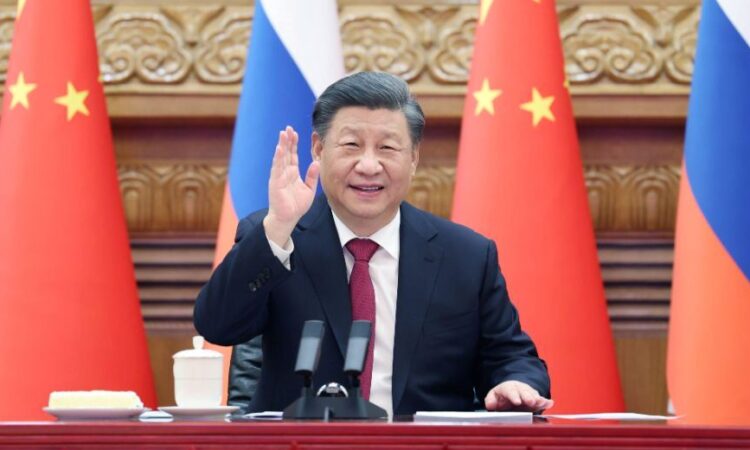
As economic and political ties between China and Russia have deepened, the significance of Kazakhstan’s location, sandwiched between the two, has increased.
There could be big economic benefits, especially given the backdrop of steady modernisation under a series of reforms pushed through by Kassym-Jomart Tokayev. Tokayev was elected president in 2019 on a ticket to gently pull back from the Soviet-era dominance of the state.
The country, home to massive mineral, uranium and oil and gas reserves, shares its northern border with Russia – the pair have a strong trading relationship – and its southeastern border with China.
This means Tokayev has to execute a deft dance to nurture his country’s relationship with the West while maintaining good relations with powerful neighbours, especially Russia, and keeping his own populace happy.
For Elite Investor Dominic Bokor-Ingram, Kazakhstan is an enticing opportunity and among the biggest regional exposures of the €550m Magna New Frontiers Fund, which he runs with fellow Elite Investor Stefan Böttcher. Bokor-Ingram also owns Kazakh stocks in his near-$190m Fiera Oaks EM Select Fund.
Meet your new equity research team – the world’s 294 best portfolio managers!
Bokor-Ingram is complimentary about the Kazakh regime, which agreed to become a channel for Russian oil following sanctions imposed by the West. New pipelines that take the oil to China mean Kazakhstan has become extremely important to both countries.
‘Kazakhstan has significantly diversified its trade, and therefore its geopolitical outlook, over the last few years,’ Bokor-Ingram said. ‘It has rejected Russian calls for allegiance, but obviously it has to get on very well with Russia because it’s a huge trading partner; it has to get on very well with China as it’s a huge trading partner; and it doesn’t want to have sanctions imposed on it by the West.’
Stable reforms
Bokor-Ingram has grown sufficiently comfortable with the stability of Kazakhstan’s reform programme – and its links to economic growth – to have made some meaty investments there.
Both his funds hold top-10 positions in Kaspi (KZ:KSPI) through the company’s US-listed American depository receipts. The Citywire + rated Elite Company is Kazakhstan’s leading financial technology business, running the dominant mobile payments, online marketplace and banking app Kaspi.kz.
Kaspi began life as a bank but gradually evolved into a retailer with a financial services arm. Customers can shop online or in store, as well as manage their personal finances and even travel.
For Bokor-Ingram, Kaspi offers growth, impressive margins and a cheap valuation compared with US peers.
‘Kaspi is an incredibly well-managed company, with very strong management that understands the business it’s in as well as anyone I’ve come across,’ Bokor-Ingram said.
‘It has about a 50% market share in e-commerce and payments, with very little competition and a rapidly expanding market, as everyone is moving online. It’s not worth a global technology company building an operation in Kazakhstan, where you have a population of 17 million people speaking a completely different language, which to a large extent is geographically challenged, for e-commerce, delivery, etc.
‘On the back of its e-commerce and payments business, it has built a very fast-growing – and now quite big – consumer finance bank. Again, Kazakhstan as a country and a population is very underleveraged and so across Kaspi’s business you still see very strong growth, and the valuation is incredibly cheap because it’s in Kazakhstan.’
Due to the complexities of trading on the domestic market, Bokor-Ingram doesn’t own Kazakh listings; instead, he has bought into its London or New York quotes. American depository receipts in the case of Kapsi.
‘The listing is irrelevant, it’s where the assets are that matters,’ he said.
Uranium a-go
Bokor-Ingram’s other main Kazakh holdings, held by the Magna New Frontiers fund, are plays on uranium, central to making nuclear energy. Advocates see nuclear as a clean fuel that will be key in effecting the energy transition.
Kazatomprom (GB:KAP) is the world’s biggest uranium miner and has an exclusive contract to supply the element to Yellow Cake (GB:YCA), a uranium investment company that is also a substantial holding in the fund. The companies are Citywire + and AA rated by Elite Companies respectively.
Kazatomprom gives the fund direct exposure to uranium mining. Yellow Cake offers cheap exposure to the radioactive heavy metal itself as its shares trade at a steep discount to the value of the uranium it holds.
‘Essentially it’s a mismatch between supply and demand, but it doesn’t make a lot of sense to us, which is why we bought it,’ said Bokor-Ingram.
He also says the ‘disconnect’ between planned uranium mining and scheduled new nuclear power means that, in several years, Yellow Cake may look like an attractive strategic asset for governments or a big nuclear power company.






